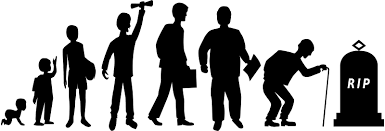
I’m only a junior. Junior year comes with high expectations and lots of responsibilities. It’s the first year that you’re an upperclassman. But, in a way, being an upperclassmen is the beginning of the end. The college pressure arises, the work-load increases, and the intensity sky-rockets. With everything whirling by, some things going high and others low, you manage to make it through.
I take Advanced/IB English and the glorified and wondrous college essay process has begun. As a writing center intern, I have already read and looked at a large quantity of college essays and this has helped me tremendously. Last night, when I sat down to write my college essay, I was stumped. It is so much harder to write a college essay than I expected. Realizing I was stuck, I went into first-drafts mode and simply wrote down whatever came to mind regarding my topic. After editing and re-writing and re-writing again, I finally came to a rough draft I was okay with calling my “first” college essay. I know that I will most likely change and re-imagine my original ideas dozens of times in the future. Oddly enough, my first rough draft of my college essay was under the word limit almost by one-hundred and fifty words. Usually, I can flood essays and papers with ideas but not this time. All I know is, no matter what, my college essay has a long writing journey ahead.
While I was writing my college essay, I was thinking, but not just any kind of thinking. I was pondering what my future holds. As junior year begins, the end is coming closer and closer. An end to my childhood and years spent in high school. I’m starting to look onward, and towards what life will hold in the years to come. Life after high school has always sounded exciting to me. I’ve known for quite some time that I want to be a neonatal nurse, but as the time steadily approaches, my mind is conflicting. So many future careers sound fascinating to me and it shocks me that we live in a world where individuals are expected to know what they wanna do by the age of seventeen or eighteen. While I am aware that my future beyond the high school is so close, I am still not entirely sure about what I want to do. And for right now, that’s alright.





 When I began my freshman year Journalism I course, one of the first lessons was to eliminate all cliches. This shocked me, because, like many other new rules established by Natalie Sekicky, the journalism teacher, it contradicted everything I had learned before. Writers imitate what they know, and I had grown comfortable with my collection of phrases, picked up over time from everything I had read or heard before.
When I began my freshman year Journalism I course, one of the first lessons was to eliminate all cliches. This shocked me, because, like many other new rules established by Natalie Sekicky, the journalism teacher, it contradicted everything I had learned before. Writers imitate what they know, and I had grown comfortable with my collection of phrases, picked up over time from everything I had read or heard before. Imagine waking up at 5 thirty in the morning on a weekend far away from home. A few of your teammates, about two or three, share a hotel room with you as the alarm goes off. You have about thirty minutes to get dressed, have breakfast in the lobby and check out before the charter bus leaves. Although you are exhausted from traveling the night before, you get out of the silk sheets and get ready to race.
Imagine waking up at 5 thirty in the morning on a weekend far away from home. A few of your teammates, about two or three, share a hotel room with you as the alarm goes off. You have about thirty minutes to get dressed, have breakfast in the lobby and check out before the charter bus leaves. Although you are exhausted from traveling the night before, you get out of the silk sheets and get ready to race.